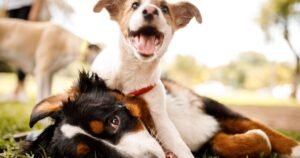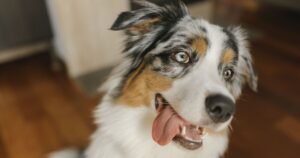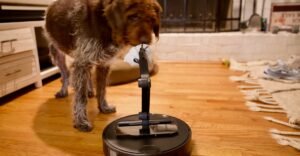Vet on five cat breeds he’d ‘never own’ – and one is very common
A vet has unveiled the five cat breeds he would personally “never” own due to a variety of potential problems associated with them.
Opening your home to a pet is an enriching experience that can bring joy and much wanted companionship. However, it’s crucial to remember getting a pet is a significant commitment that requires thorough research before making any final decisions.
Cats are incredibly popular in the UK, with around 24% of adults owning an estimated 10.8 million pet cats. Their low maintenance nature, stress-relieving presence, and often quirky personalities contribute to their charm as household pets.
Dr Amir Anwary, a veterinarian with a vast TikTok following, regularly shares his insights and advice on animal care. In one of his latest videos, he reveals the five cat breeds he would “never own as a vet”.
Accompanying the video, Dr Anwary humorously added: “The last one I would definitely not own”, complete with crying laughing emojis.
5. Munchkin
The Munchkin cat, officially recognised in 1991, is known for its short legs caused by a genetic mutation. It’s commonly believed to be the original dwarf cat breed.
Despite their loving and sociable character, the vet has issued a warning about the potential pain and health issues faced by certain adorable pets due to their unique looks.
Dr Anwary explained: “Their short legs are caused by a genetic mutation that can lead to spinal and joint problems (like lordosis or arthritis).”
4. Birman
The Birman, revered as the ‘Sacred Cat of Burma’ for its stunning long-haired coat and distinctive colour-points, is also on the vet’s list, though not because of their attractive deep blue eyes and sought-after white “gloves” on each paw.
This breed, Dr Anwary notes, is “prone to inherited diseases like hypertrophic cardiomyopathy (HCM), and some lines have immune system issues.”
3. Scottish Fold
The Scottish Fold’s docile temperament has won many hearts, but these pets carry serious risk factors.
A dominant gene mutation leads to osteochondrodysplasia, a disorder affecting bone and cartilage development and causing wide-ranging health issues and pain.
Dr Anwary cautioned: “The folded ears come from a cartilage defect that also affects joints, often leading to painful osteochondrodysplasia.”
2. Persian
The vet warned against keeping Persian cats, again due to potential health issues. He stated: “Their flat faces (brachycephaly) can cause chronic breathing problems, dental issues, and tear duct overflow, plus they’re prone to polycystic kidney disease (PKD)”.
Despite their popularity for their luxuriously long fur, adorably round faces, and gentle nature, their distinctive short muzzles see them burdened with health problems.
In some countries, nearly half of the Persian cat population reportedly suffers from PKD due to their squished snouts.
1. Tiger
Topping off the list with a more extreme example, humorous example, the vet listed tigers.
Wild creatures like tigers have notoriously been kept as pets over the years, notably by ex-heavyweight champion Mike Tyson who famously had a penchant for Bengal tigers, and is believed to have owned three.
Keeping a tiger as a pet is fraught with peril; these undomesticated wild animals potentially pose fatal risks to those attempting to contain them in a non-natural setting.
You may be interested

Khan Younis residents flee amid Israeli military’s evacuation order
new admin - May 20, 2025IE 11 is not supported. For an optimal experience visit our site on another browser.Now PlayingKhan Younis residents flee amid…

Roborock Saros Z70 review: a great robot vacuum with a sometimes helpful arm
new admin - May 20, 2025I suspect my dog does not like the Roborock Saros Z70. Unlike the dozens of other robot vacuums that Gus…

Deadly storms slam central U.S., leaving path of destruction
new admin - May 20, 2025Deadly storms slam central U.S., leaving path of destruction - CBS News Watch CBS News Severe storms slammed the central…
































